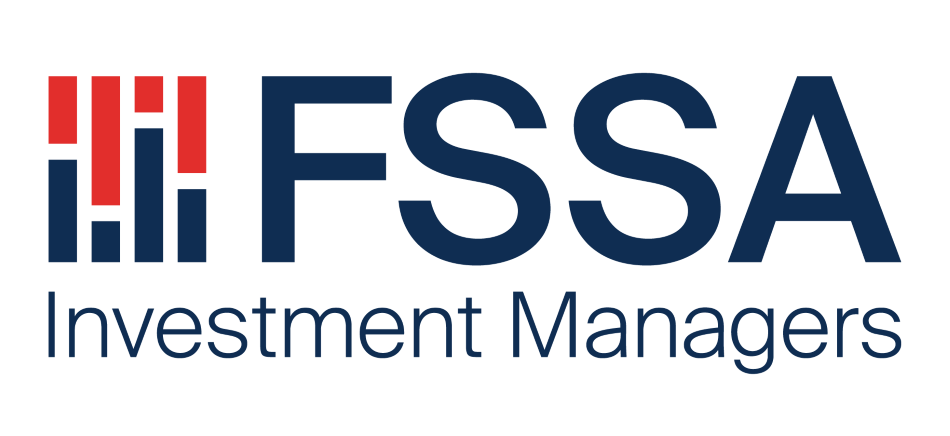Your search returned more than 50 results. The 50 most relevant results are displayed.
We believe that property fundamentals are largely driven by local property factors and have team members located in Asia Pacific, Europe and the United States.
Our Head of Global Property Securities, Stephen Hayes, explains the benefits of investing in property securities and discusses property performance in a rising interest rate environment.
Watch our Head of Global Property Securities, Stephen Hayes, discuss the key characteristics of the strategy, characterised by investments in high quality real estate within the world’s most bustling cities. Find out more about the potential benefits of investing in property securities and how the strategy is predominantly invested in the following video:
Our Head of Global Property Securities, Stephen Hayes discusses how the team are positioning the portfolio post-COVID.
Investing with regard to environmental, social and governance considerations is not new to us. Our Head of Global Property Securities explains how these factors directly influence stock selection and portfolio construction.
Our Head of Global Property Securities, Stephen Hayes, introduces the strategy and tells us more on how the strategy is predominantly invested in residential assets and logistics assets. Both of those two asset types make up over 50% of the portfolio.
The outlook for the global economy and financial markets looks more uncertain today than it has for a long time. Both interest rates and inflation have risen sharply. There is a growing consensus that much of the world will shortly be experiencing slowing economic growth. Understandably, investors are asking what their options are. With a wide array of asset classes available, which are best placed to offer investors resilience in the current environment, but also sustainable investment opportunities?
Consider listing property as part of real asset portfolios for long-term returns, liquidity, and inflationary hedge. This article explores these factors and emphasizes the investment potential of listed property as a complement to real asset portfolios.
Based on the fundamentals heading into 2020, Head of Global Property Securities, Stephen Hayes, expects listed property sector valuations to remain at current levels. Our strategy’s largest exposures are to residential, logistics and office assets.
From residential dwellings to offices and data centres, our Head of Global Property Securities, Stephen Hayes, shares his view on the trajectory for property in a post-COVID world.
Our Head of Global Property Securities, Stephen Hayes, tells us why he is positioning his portfolios around trends such as decentralisation, the falling home ownership rate and the adoption of e-commerce.
Tap into a relatively stable investments in real assets, infrastructure, property and essential services we all rely upon
Global Property Securities - US resi 2.0: The expanding renter opportunity | First Sentier Investors
As the renter market in the United States continues to grow, so does the opportunity for investors in a certain type of Real Estate Investment Trust.
This paper examines our investment teams’ approach to managing a global listed property portfolio and highlights how it aims to preserve clients’ capital in a climate of rising interest rates and/or softness in property prices.
Our Head of Global Property Securities, Stephen Hayes, highlights the global opportunity set and explains why over time, investment in greener buildings will pay off for investors.
2018 outlook: moderately rising interest rates will not materially impact property valuations.
Approximately a third of all global carbon emissions come from the real estate sector. Our Head of Global Property Securities, Stephen Hayes, compares new developments with redevelopments and highlights the opportunity set for investors in the coming decade.
Property podcast: essential bricks and mortar
As more carbon emission regulation comes in globally – as we expect it will – Real Estate Investment Trusts (REITs) with emission reduction plans are likely to be better-placed than their peers as the cost of carbon increases.
Stabilising the climate will require strong, rapid, and sustained reductions in greenhouse gas emissions, and reaching net zero CO2 emissions.
COVID-19 has sent shockwaves through capital markets, and property securities have been no exception. The crisis has plunged the global economy into recession and has given rise to the remote work and learning thematic, while seemingly fast-tracking the rise of e-commerce.
The growth in health care, e-tailing and omni-channel retailing has been a major driver of the increased demand for logistics distribution centres.
Now that more than 18 months have passed since COVID-19 started sweeping the world, we have a good understanding of how the pandemic has affected real estate investments. In some ways, it has changed the game. In other ways, it has simply underlined a number of trends that were already shaping the sector.
The Novel Coronavirus (COVID-19) pandemic has seen most financial assets sell-off across the board, including securities in the traditionally defensive listed property sector. How will landlords fare?
The ongoing global outbreak of the Coronavirus (COVID-19) pandemic has seen an extensive sell off permeate financial markets as investors grapple with concerns around how the drastic government and central bank responses to the outbreak will augur for global economic growth. The dramatic sell off in equities across the board has included property securities markets.
In order to fully understand why Kaisa defaulted on its bonds, we first need to get a good grasp on the deleveraging policy called the three red lines. Following years of debt-fueled growth in the property sector during which home prices surged six-fold over the past 15 years, the Chinese government decided to rein in excessive credit took on by property developers to avoid Japan’s mistake in the 1990s, which eventually led to long-term damage to growth.
A diverse range of global, regional and sector-based equity, cash and fixed income, infrastructure, property and alternative credit investment strategies and funds.
There were a number of structural trends leading up to the Covid pandemic that were all very well understood. And the pandemic has given rise to some newer emerging trends. And what is central to the majority of these trends is the rapid advancement and continued adoption of technology which is driving societal change.
We believe real estate securities will be supported by a global economic recovery in 2021, underpinned by highly accommodative governments and central banks and the gradual normalisation of commercial and social activity as the world is progressively inoculated against COVID-19.
Credit portfolios with genuine Environmental Social and Governance (ESG) integration could be a canary in the coal mine for potentially difficult-to-quantify risks and opportunities, including those likely to stem from climate change and the energy transition. While governments globally move at different speeds to put in place net zero policies, ESG-focused credit investors are taking decisive, early action to reflect these factors in their portfolio allocations.
There are marked changes occurring within global housing markets with a defined long-term trend from home ownership to rental accommodation, as housing affordability has become a major issue for younger generations and as the aspiration to own a home has waned with priorities shifting towards lifestyle and experiences. Another factor driving the greater propensity to rent is the quality of amenities. These trends have underpinned robust and growing demand for institutionally owned, purpose-built residential apartment buildings.
Achieving net-neutral carbon development within the listed real estate sector requires comprehensive measurement of embodied carbon emissions, the implementation of embodied carbon reduction targets within development programmes and carbon offsets.
Investing in property securities provides investors with an opportunity to exploit trends in various property sectors through the listed property trust market, without the significant transaction costs that typically apply when investing in direct property.
Globally, all major property markets rose in local currency terms in December except for Japan, which ended the month slightly lower. New Zealand was the strongest property market in GBP terms, returning 9.0%, followed by the UK, which rose 8.2%. The FTSE EPRA/NAREIT Developed Index (TR) rose 1.5% in GBP terms.
Digital transformation, cost cutting through operational efficiency, scalability and COVID-19 safety. These four themes have been key drivers in almost every industry, which has been reflected in the gravity of changes we have seen as industries have evolved. The hospitality industry is facing disruption from a new consumer trend driving an insurgency of ‘ghost kitchens’ – and this has implications for property investors.
The FTSE EPRA/NAREIT Global Developed Index (GBP) decreased 7.7% in the March quarter, which was more than the broader equities market (MSCI World Index -4.8% total return in GBP terms). Global REITs (Real Estate Investment Trusts) struggled over the first half of the quarter before returning to relatively strong returns against a broader market plagued by higher interest rates and trade war fears.
Explore property investments through an ESG lens with First Sentier Investors today. Our responsible investment approach rests on a strong stewardship mindset.
Check the latest First Sentier Investors fund price and fund performance, keep track of funds performance and trends to help investment selections.
East Cermak has over 1.1 million square foot of gross lettable area and draws on over 100 megawatts of power from three separate grids. To put its power output in perspective, it’s the equivalent of the amount of power used by 100,000 households.
Once again, 2021 was a year full of surprises and challenges, with ongoing Covid disruptions and China turning from a global outperformer to underperformer. The Chinese government’s policy crackdowns, especially in the internet, education and property sectors, were sudden and dramatic.
What could be better than tapping into the boom in tertiary education while also reducing exposure to economic risk? Student accommodation has been a fast growing property sector as it satisfies investor demands for more growth and less risk. This piece looks at a recent transaction in this sector in the UK and highlights why student accommodation has investor appeal.
Property markets fell consistently around the world in February. The FTSE EPRA/NAREIT Developed Index (TR) was down 6.3% in USD terms. In local currency terms, Canada was the strongest property market despite losing 1.1%, while the US (-7.4%) was the weakest property market.
Global economic growth continues to grow at a moderating pace. We expect global GDP growth to continue to slow into 2020 along with the Chinese economy. High Chinese Local Government debt, moderating terms of trade and a sluggish domestic economy continue to weigh on growth.
Globally, major property market returns were relatively strong in March against a weak broader market. The FTSE EPRA/NAREIT Developed Index (TR) rose 0.66% in GBP terms. In local currency terms, the UK (4.3%) was the best performing market, while Hong Kong (-2.5%) was the worst.
Demand has remained strong across airports and toll roads globally. This strong demand seems somewhat counter-intuitive to the uncertain economic outlook and significant cost of living pressures throughout the world.
Global GDP growth continues at long term trend levels, mainly driven by developed countries where economic growth remains broad based across the household, private and Government sectors.
Office real estate is undergoing a fundamental shift, while COVID-19 has accelerated a number of global real estate investment trends, according to First Sentier Investors.
Global asset management group focused on providing high quality, long-term investment capabilities to clients. We bring together independent teams of active, specialist investors who share a common commitment to responsible investment principles.
First Sentier Investors, a leading global investment manager is pleased to announce the appointment of John Bennett as the new Head of UK Wholesale, effective immediately.
Risk assets fared well in April as investor sentiment was buoyed by the huge monetary and fiscal responses to the COVID-19 pandemic, as well as signs that social distancing measures have been effective in slowing the spread of the virus and hopes that a vaccine could be developed by year-end.
Get the right experience for you
Your location :  United Kingdom
United Kingdom
Australia & NZ
-
 Australia
Australia -
 New Zealand
New Zealand
Asia
-
 Hong Kong (English)
Hong Kong (English) -
 Hong Kong (Chinese)
Hong Kong (Chinese) -
 Singapore
Singapore -
 Japan
Japan


























